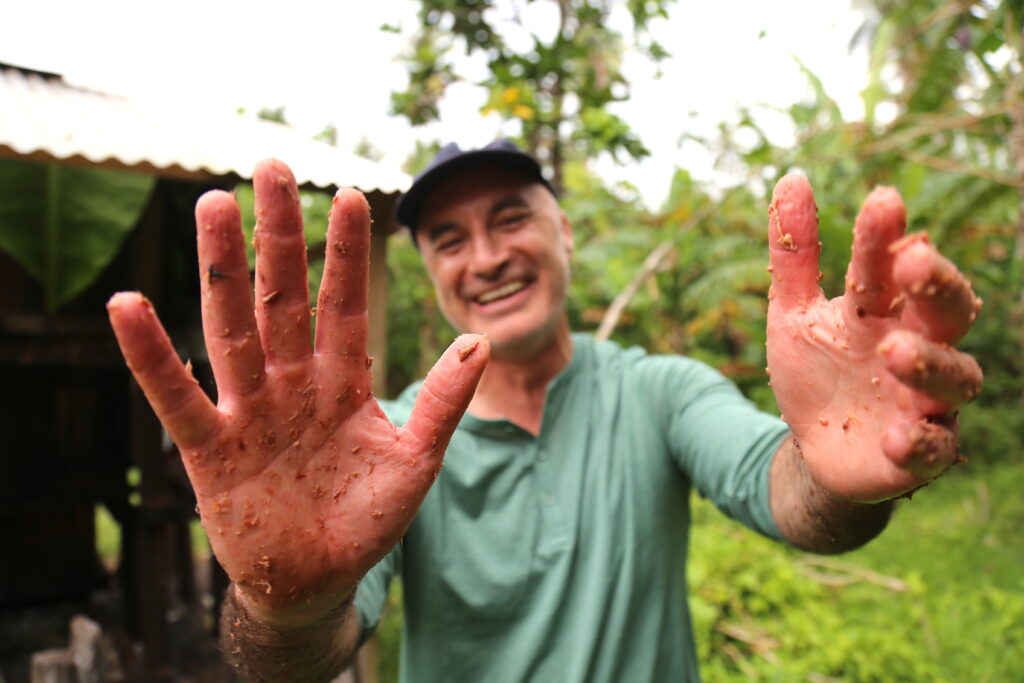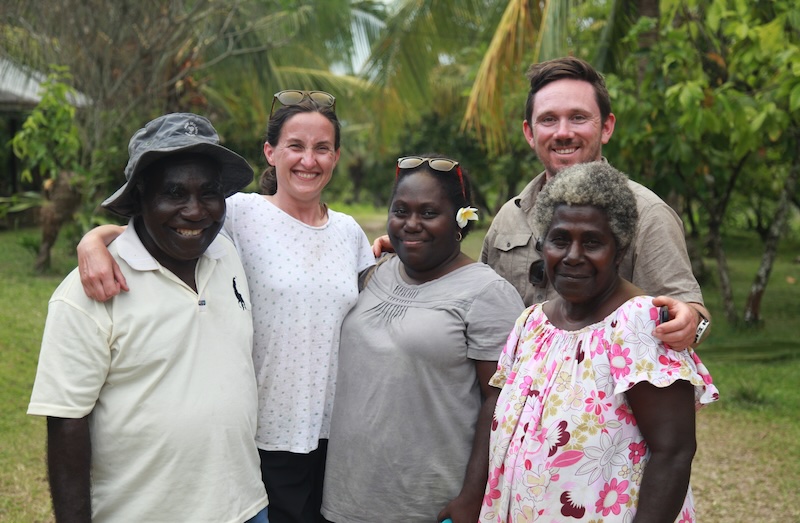Wellington Chocolate Factory is bringing the majority of its cocoa supply closer to home, moving to source beans from the Pacific region as it doubles down on its commitment to transparency, impact and producing some of New Zealand’s best chocolate.
Eleven years ago, WCF’s journey with ethical sourcing began with Fairtrade and organic certifications using cocoa from the Dominican Republic and Peru. Shifting to Pacific cocoa means it will no longer carry either, as the region is still transitioning towards these certifications. Instead, it will engage in a new level of transparency with its consumers, publishing precisely what it pays for its beans through its direct relationships with growers.
Gabe Davidson, the co-founder of WCF, describes this milestone as the right thing to do and says it will help build the emerging premium cocoa market.
“We’ve wanted to do this for a long time – these growers are our neighbours, and our relationship with them goes back over a decade. We visit our suppliers regularly, have full visibility over their supply chain, and can see their cocoa trees are grown and harvested sustainably, meaning our commitment to quality and ethics is stronger than ever.

“By moving our sourcing to the Pacific, we’re in a prime position to help farmers lay the foundations for a robust and thriving premium cocoa industry. In the long-term, this will help more people stay in-country and work instead of heading overseas to pick fruit to support their families and villages,” he says.
In 2021, Wellington Chocolate Factory launched its Grower Partner initiative, sourcing premium beans for its first single-origin Vanuatu bar directly from farmers. This programme’s success and improving infrastructure across the Pacific means WCF can now source the quantities of cocoa it needs to fuel its next growth stage.
WCF’s General manager, Matt Williams, says Fairtrade has played a pivotal role in shaping who they are today; WCF will work with them as they explore options to bring more Pacific cocoa co-operatives under the Fairtrade umbrella.
“We remain deeply aligned with their values and are committed to helping Pacific farmers achieve certifications if they wish. For us, this is about adding to the strong foundations that have been a cornerstone of our work,” he says.

WCF has begun publishing what it pays for its cocoa and will provide annual updates. Willams says most of the large and well-known chocolate brands are made from ‘commodity’ cocoa beans primarily sourced from West African countries like Ghana and the Ivory Coast. They pay the global market price set by financial markets for their cocoa – WCF’s farmgate price is substantially higher.
“Despite global record prices, the Ghanaian farmgate price is approximately only US $ 3070 per tonne, leading to farmers and their families living in poverty and working under challenging conditions, which encourages child slavery. In comparison, we currently pay our Pacific growers a minimum of $ 5500 a tonne, 81 per cent more than the West African farmgate price”.
Davidson says this shift isn’t about moving away from ethics but going deeper through their direct relationships with growers.
“We’re still using organic ingredients wherever possible and want to help growers create a thriving specialty cocoa market,” he says.
Before Davidson opened the doors to WCF in 2013, he met a farmer in Bougainville who was about to give up on his cocoa farm after 50 years.

“He could only sell his beans through the commodity market and wasn’t making enough money to make it viable – and this is where our dream of sourcing directly from the Pacific took seed. He suggested I learn to sail and bring a boat to Bougainville so he could sell me his cocoa, and that’s how our Vaka voyage from Wellington to Papua New Guinea was born,” he says.
Since then, Davidson has visited the region regularly, forging enduring relationships with growers and suppliers – most recently heading to Vanuatu with Williams during the 2022/2023 season.
“We’ve seen firsthand how our partnerships empower communities, improving their farming practices and livelihoods; solar power to help dry cocoa, water pumps, and even judging local chocolate-making competitions,” he says.
WCF was the first chocolate maker to produce a single-origin chocolate bar using Bougainville cocoa. Davidson became a judge of the inaugural Solomon Island’s chocolate competition, a significant event that now attracts chocolate makers from all over the globe to the Pacific.
“By shifting our sourcing to the Pacific, there’s a new world of opportunities for WCF and our growers – it’s the start of the next evolution of WCF,” says Davidson. WCF has begun transitioning its core range to feature Vanuatu cocoa.
The post Wellington Chocolate Factory’s commitment to building a thriving cocoa industry appeared first on stoppress.co.nz.
More Stories
Tables turned: Restaurants start rating customers
Santiago Gallego to Join Telemundo Chicago as Reporter and Anchor
The ADWEEK Guide to AI